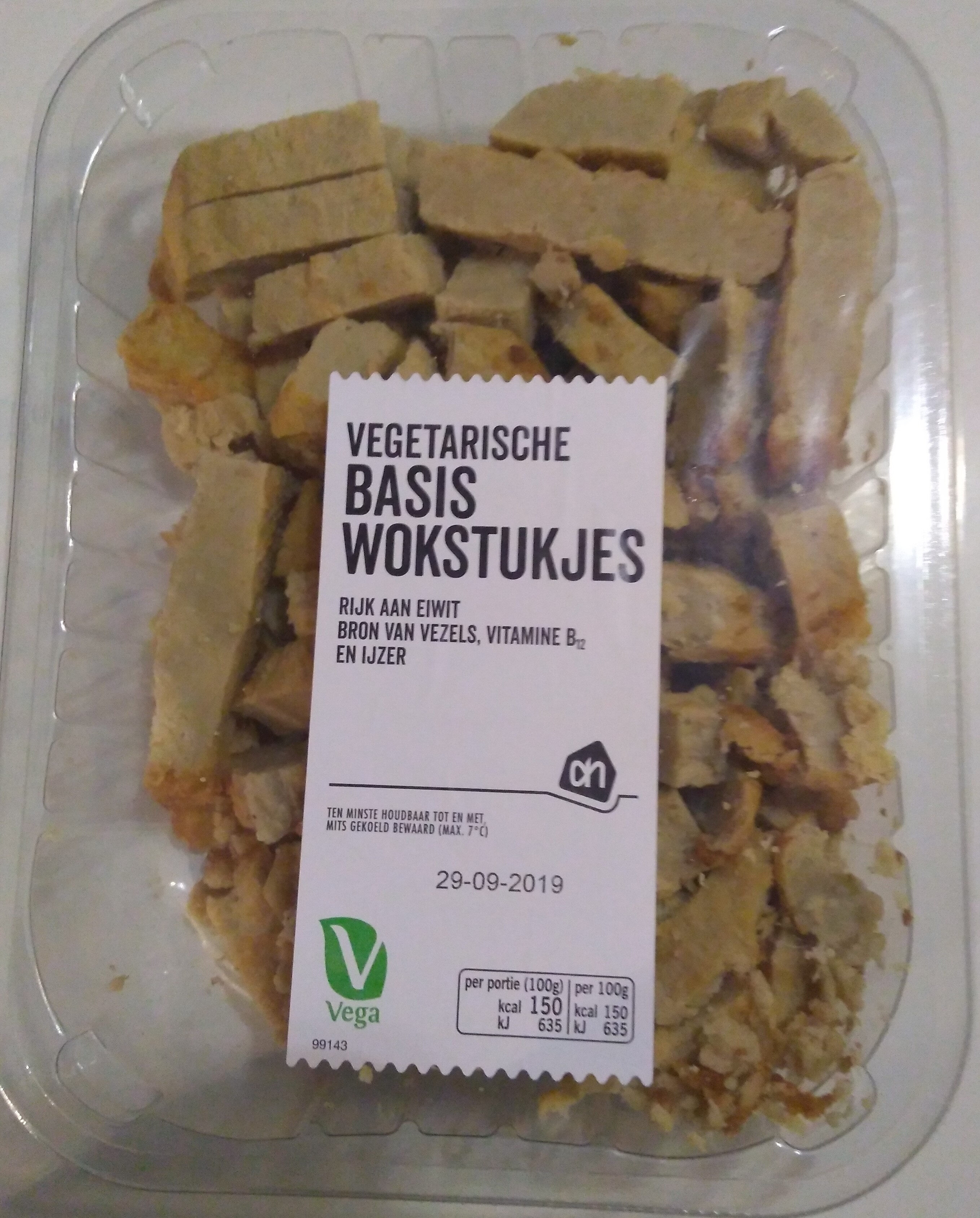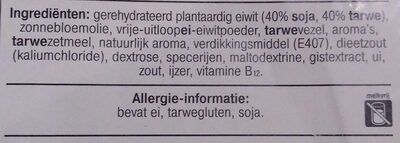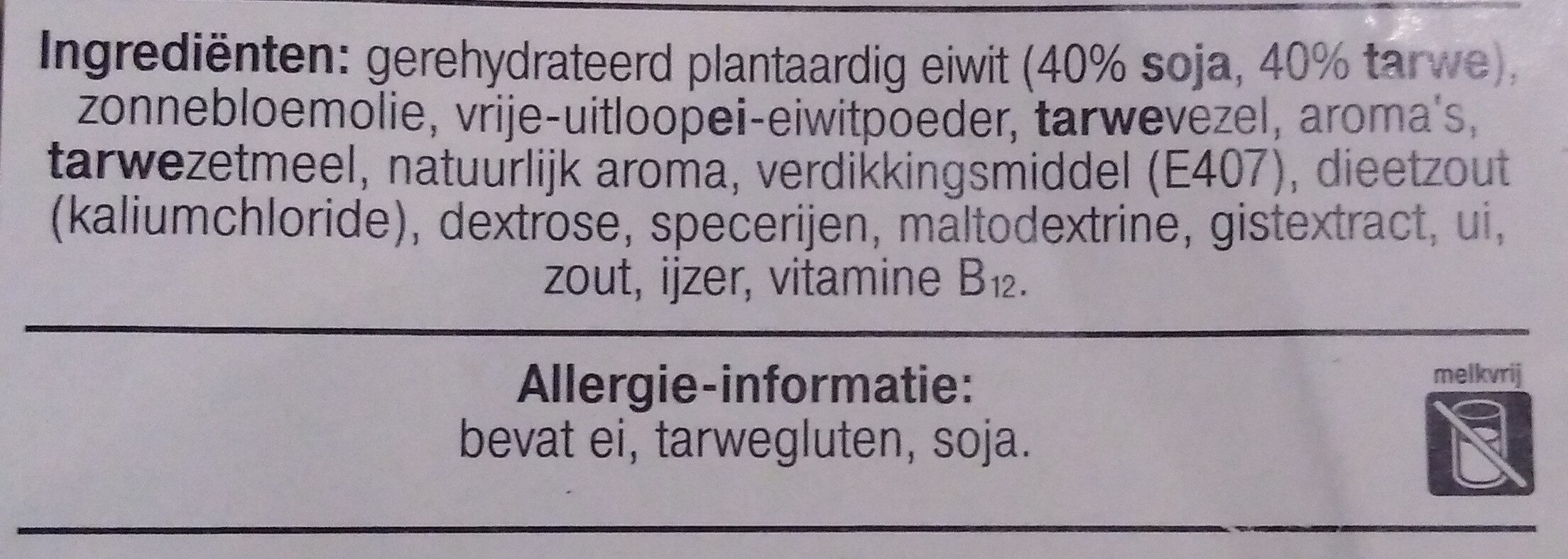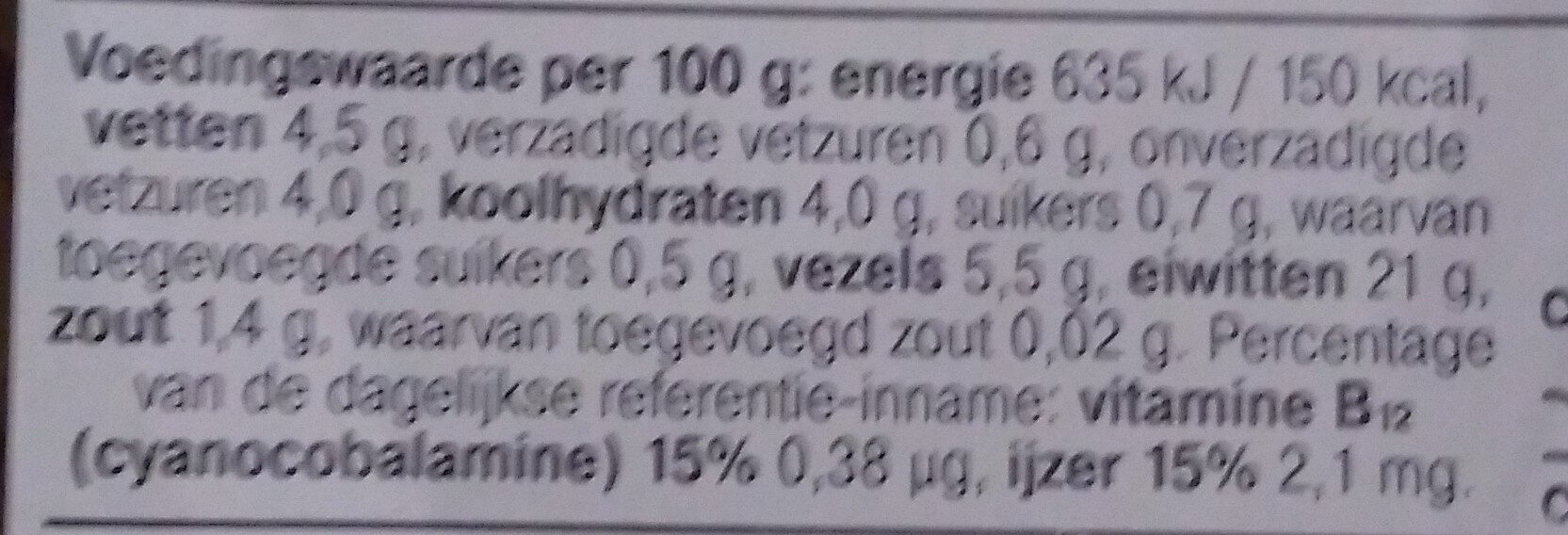Vegetarische basis wokstukjes - Albert Heijn - 200 g
This product page is not complete. You can help to complete it by editing it and adding more data from the photos we have, or by taking more photos using the app for Android or iPhone/iPad. Thank you!
×
Barcode: 8718907042345 (EAN / EAN-13)
Quantity: 200 g
Packaging: Plastic
Brands: Albert Heijn
Categories: Plant-based foods and beverages, Plant-based foods, Meat alternatives, Meat analogues
Labels, certifications, awards: Vegetarian, No milk
Stores: Albert Heijn
Countries where sold: Netherlands
Matching with your preferences
Environment
Packaging
Transportation
Report a problem
Data sources
Product added on by jtimens
Last edit of product page on by aleene.
Product page also edited by dnl, kiliweb, openfoodfacts-contributors, packbot, roboto-app, yuka.WjZGZU81NVlvdDhzZ2RzMzlFbk4vTk1yenArNFhFS1BHZFF4SVE9PQ.
If the data is incomplete or incorrect, you can complete or correct it by editing this page.










